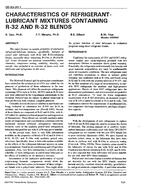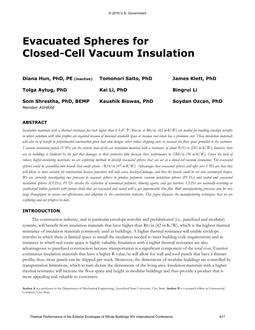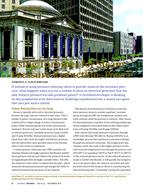Optimal performance of closed-loop, ground-source heat pumps (ground-coupled heat pumps) is dependent upon the thermal properties of the backfill in the annular region between the ground heat exchanger (GHEX) tubes and the outer bore wall. Equally important is the protection of groundwater aquifers from contaminants that may flow from the surface or other aquifers through poorly sealed boreholes. Conventional cement and bentonite-based grouts have relatively low thermal conductivities. Loop requirements often increase beyond the allotted budget in applications where regulatory bodies require the entire heat exchanger length to be grouted.
This paper reports on the results of four mixes of thermally enhanced cementitious grouts. Four grouts were evaluated in a test stand to minimize the impact of external factors typically present in field tests. The test stand accepts up to 6 in. (15 cm) ground heat exchangers in a 10 ft (3 m) test section. Controlled testing is performed in either the cooling mode (loop above 85°F [29°C]) or heating mode (loop at 32°F [0°C]), and the temperature of the outer bore wall is held constant with a groundwater source.
Results indicate cement grouts that are enhanced with low-cost additives have thermal conductivities three to four times as large as conventional high-solids bentonite grouts. This would result in reduced heat exchanger lengths compared to those grouted with bentonite. There appears to be no measurable increase in overall borehole resistance due to separation of the colder tubes from the grout in the heating mode. This discussion does not include pumpability, permeability, and material handling issues, which must be thoroughly investigated before any grout can be recommended for use.
Units: Dual
Citation: Symposium, ASHRAE Transactions, vol. 105, pt. 1
Product Details
- Published:
- 1999
- Number of Pages:
- 5
- File Size:
- 1 file , 190 KB
- Product Code(s):
- D-7558


